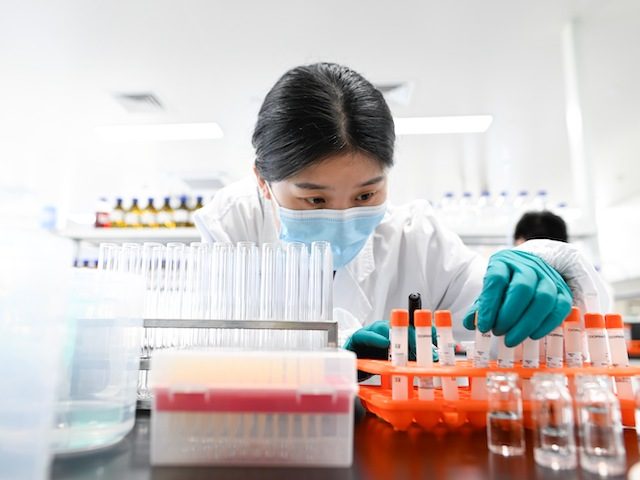Hong Kong government authorities ejected a private clinic from the city’s coronavirus vaccine drive on Tuesday for suggesting patients choose the coronavirus vaccine developed by American company Pfizer over a Chinese-made option.
Hong Kong’s Department of Health said it revoked a clinic’s permission to administer coronavirus vaccines and reclaimed unused doses of the Chinese-made coronavirus vaccine candidate “Coronavac” from the facility because the doctor who runs the clinic, Lau Tung-wah, violated an agreement with the city’s coronavirus inoculation program.
The announcement followed news reports over the weekend that the clinic had shared the following message with its patients: “Sinovac has a bad reputation, and BioNTech’s international reputation is good.” BioNTech is a European company that developed the American vaccine alongside Pfizer and is supplying Hong Kong’s batches of the product. Sinovac is the Chinese company that developed Coronavac.
“Dr. Lau himself gets BioNTech and not Sinovac, as does professor Yuen Kwok-yung,” the note added.
Photos of the notice went viral on social media over the weekend, prompting the local newspaper Ta Kung Pao, which is controlled by Beijing’s Liaison Office in Hong Kong, to publish a report accusing Dr. Lau Tung-wah of “smearing” China’s Sinovac.
“The doctor [Lau Tung-wah] was not providing BioNTech jabs” at his clinic, as they are “only available at larger, public-sector facilities” in Hong Kong, local broadcaster Radio Television Hong Kong noted on Tuesday.
Hong Kong’s Department of Health said on Tuesday it will “keep reminding private doctors to provide vaccination services in accordance with guidelines.”
Coronavac is manufactured by the Chinese state pharmaceutical company Sinovac Biotech. It has an efficacy rate of just 50.38 percent against the Chinese coronavirus, according to late-stage clinical data released in January. By contrast, the Pfizer/BioNTech coronavirus vaccine is believed to be 95 percent effective against the Chinese coronavirus according to data from late-stage clinical trials.
The number of people volunteering to receive a dose of Sinovac through Hong Kong’s government vaccine program dropped nearly 20 percent this month after three people died and at least two others were admitted to intensive care units shortly after receiving their first dose of the shot in March.
The proportion of people attending their pre-booked vaccine appointments dropped from 90 percent at the launch of the campaign in late February to 72 percent in early March, Hong Kong civil service secretary Patrick Nip Tak-kuen told a local radio show on March 9. Nip, who heads the Hong Kong coronavirus vaccination program, added that many people were simply not showing up for their Sinovac appointments following news of the health incidents. “Citizens’ concerns are understandable,” Nip said at the time.

COMMENTS
Please let us know if you're having issues with commenting.